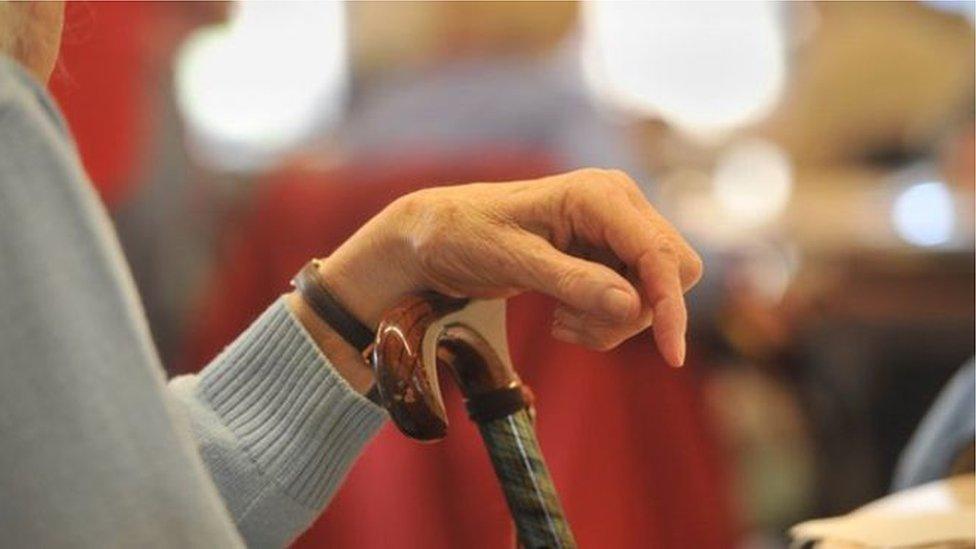Loneliness 'as damaging to health as poverty and poor housing'
- Published

Loneliness is "as damaging to Scots health as poverty and poor housing", an official report has suggested.
The Scottish Parliament's equal opportunities committee called for the government to prioritise loneliness and isolation as a public health issue.
The committee said it was as significant in Scotland as low income.
It also called for the government to develop a strategy to reduce the stigma of "admitting to loneliness".
MSPs heard evidence of older people who went to great lengths for company, such as visiting their doctor every week and riding the bus all day.
They also heard that young people who suffer from loneliness "forget what it is like to be in the company of other young people".
'Considerable problem'
The committee noted that in older people, loneliness was linked to dementia rates and malnutrition.
According to Age UK, two in five older people in Scotland said television was their main form of company.
Michelle McCrindle, of charity Food Train, told the committee of people in their late 90s who "thought that their lives were over" but had discovered "a whole new life" after going to the charity's befriending groups.
In young people, the committee heard that the early effects of bullying and a lack of social inclusion could lead to isolation.
Being in poverty - and the associated social stigma it sometimes carries - may cause young people to become isolated, witnesses giving evidence suggested.
Loneliness in young people was a particular problem for the LGBT community, those from ethnic minorities, or those who had a disability and was linked to suffering discrimination.
Margaret McCulloch MSP, convener of the equal opportunities committee, said loneliness was a "considerable problem in Scotland" and that "individual citizens, public services and the Scottish government must take collective responsibility to tackle the situation".
A Scottish government spokeswoman said: "We are committed to tackling inequality and social exclusion, and welcome the contribution made through today's publication of the Equal Opportunities Committee's Report.
"This is an important issue, with no easy answers, however we are committed to exploring what more we can do to tackle this serious issue which still affects too many in Scotland.
She added: "The committee's considerations are wide-ranging and we will consider them fully before responding to the report's recommendations.
"We will ensure its findings are included in our Fairer Scotland discussion, which calls on people with direct experience of exclusion to put forward their views and help shape the way we tackle this issue in the future."